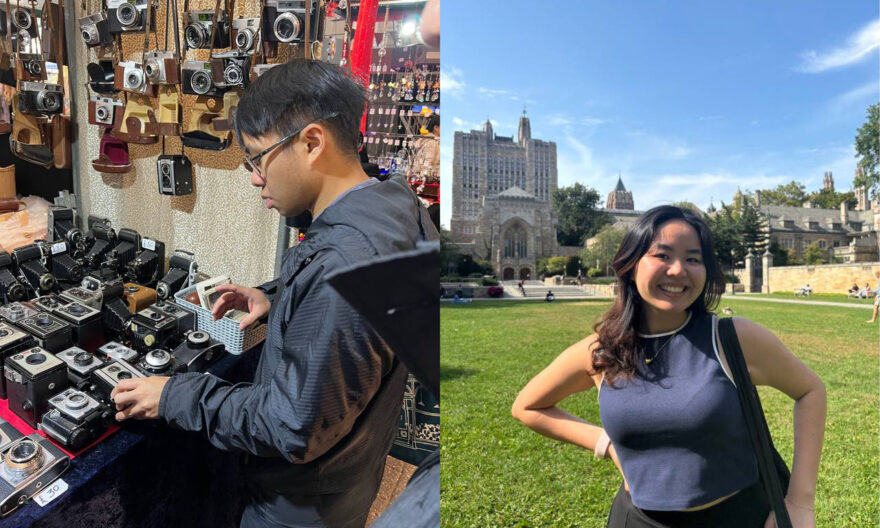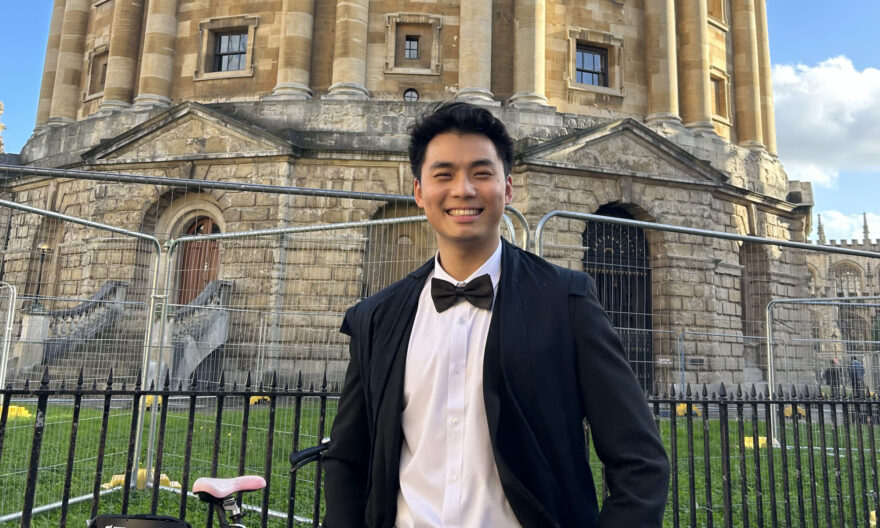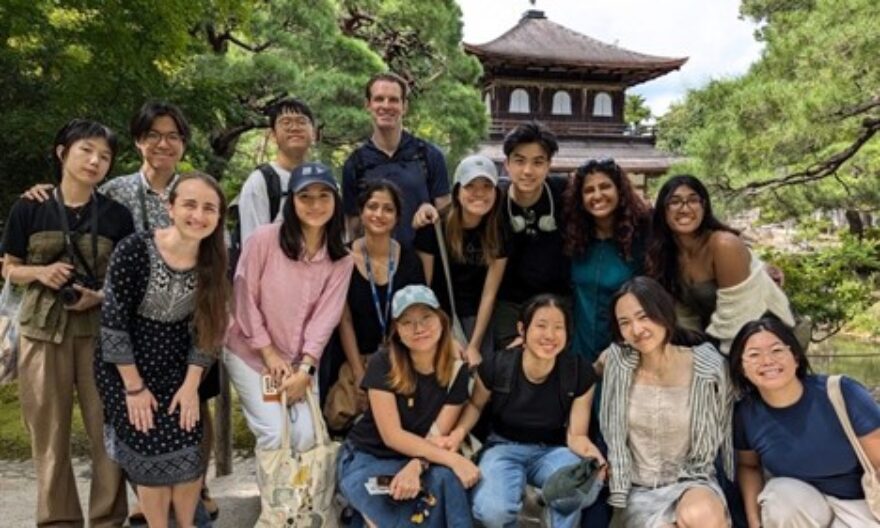Students explore food sustainability in Japan on a travel fellowship
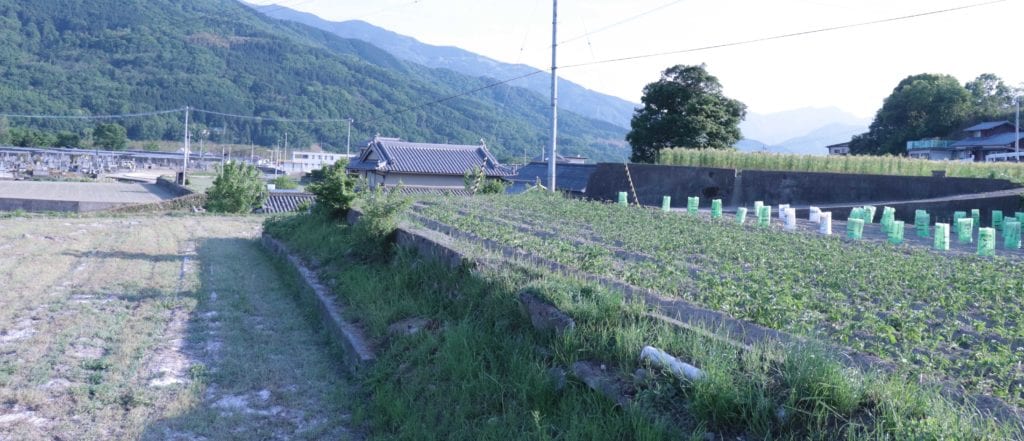 Image provided by Yeo Jing Ying.
Image provided by Yeo Jing Ying.
During the past summer, two Yale-NUS College students, Yeo Jing Ying and Coco Oan (both from the Class of 2022), embarked on a month-long travel fellowship to Japan to study food sustainability. The Travel Fellowship programme is a summer programme spearheaded by Yale-NUS College’s Centre for International & Professional Experience (CIPE). It is designed to give inquisitive students the unparalleled opportunity to explore an academic pursuit through the use of travel as a medium for learning.
Titled “Food Sustainability in Japan: Tension between Perfectionism and Mottainai”, Jing Ying and Coco’s travel fellowship experience brought them across multiple prefectures in Japan, namely, Tokushima, Kyoto, Ishikawa and Tokyo, and saw them interact with a wide range of stakeholders involved in Japan’s food production and sustainability industry.
The sentiment of Mottainai in Japanese roughly translates to “what a waste” in English and it reflects the age-old Japanese belief in cherishing what they have. Elaborating on this point, Jing Ying explained that while this phrase wasn’t created for the idea of environmental protection, it still lies at the heart of being conscious about food consumption and cherishing natural resources.
“We chose to explore food sustainability because we love food but at the same time, we are concerned about how production and distribution of food can remain sustainable in the wake of the current climate crisis. There is a tension between the need to increase food production and the importance of eating local and reducing food wastage,” said Jing Ying.
Across the different prefectures, Coco and Jing Ying visited many farms and small-town communities. In addition to speaking to farmers about the process of farming and food sustainability, they also stepped into the shoes of the farmers by working in the farms. One of the farms that they visited was Ono Farm, a pioneering farm in the organic food movement in modern Japan. There, they discovered that prior to the Green Revolution, people in Japan mostly farmed organically. However, with modernisation of equipment, subsistence farming gave way to mechanised, profitable farming where commercial fertilisers, pesticides and herbicides became normalised.
“Organic farming uses natural fertilisers such as ground oyster shells. The abstinence from using non-natural products in farming results in crops that are a lot healthier and tastier. I’ve never liked peas but I discovered that organically farmed peas are very sweet and crunchy,” mused Jing Ying.
In Tokyo, they were also heartened to discover many small farmers markets and organic stores in spite of the dominant modernist, consumerist culture of the city. They met farmers of vegetable and free-range egg farms, distributors of organic food and companies supporting socio-environmental causes, such as a Fairtrade company bringing in organic bananas to Japan.
For both students, what warmed their hearts the most was the eagerness of the farmers and distributors to share their stories and passions with them.
“While it may appear that values such as mottainai have disappeared along with the times, I believe they’re still somewhere in people’s hearts and that these values can be ignited once more, especially with the hard work and passion of all these farmers and advocates,” said Jing Ying.
For both students, their various discoveries from the trip were supplemented by what they had learnt back in the classroom. For example, Coco took an introductory course on environmental studies and was heartened to be able to learn about agroecology in action. For Jing Ying, her knowledge of life histories and predator-prey interactions from her class on Ecology and Ecosystems taught her how to better understand the environmental impact of wild boar hunting in the Japanese mountainous countryside.
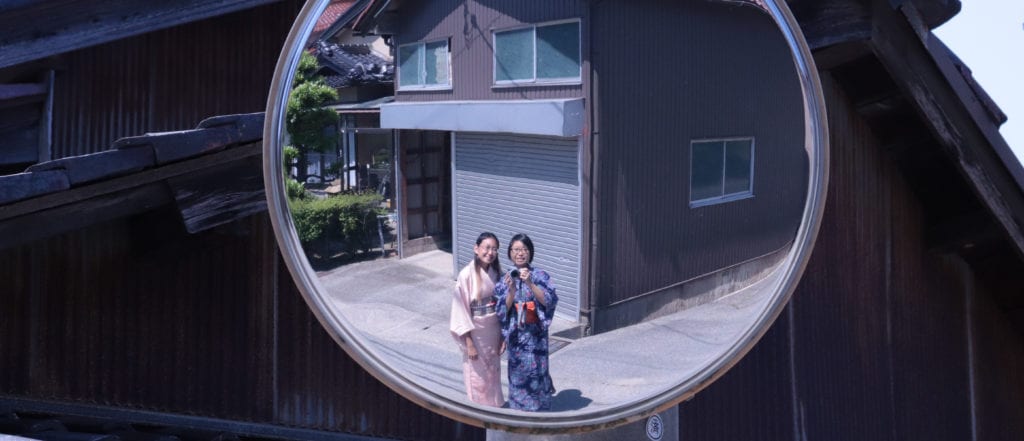 Yeo Jing Ying (left) and Coco Oan (right) in Japan. Image provided by Yeo Jing Ying.
Yeo Jing Ying (left) and Coco Oan (right) in Japan. Image provided by Yeo Jing Ying.
Both students are avid advocates for sustainability in Singapore. In addition to being a part of I’dECO, Yale-NUS’ student sustainability group, they are also actively involved in sustainability projects outside of the campus. Jing Ying leads a project called PublicAction with LepakinSG, which aims to improve public literacy on environmental policies and empower people to give conducive feedback to the government. Meanwhile, Coco leads Project bECOme, a youth environmental organisation that aims to reduce single-use waste through changing both individual behaviours and systems.
Back on campus, they are eager to share their newfound knowledge and experience with the community. Recognising the importance of creating a close, small knit group as a catalyst for environmental sustainability in a big community, Jing Ying plans to bring her knowledge to Project Spiral, a college-wide initiative by I’dECO to inculcate a circular economy culture of using and re-using. For Coco, she intends to share some of the farming practices that they observed in Japan with the College’s urban farming interest group.
“In view of the climate crisis, there is still hope – and it lies with passionate hearts, and the need to connect them to create powerful communities”, Jing Ying and Coco concluded.

